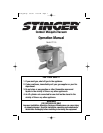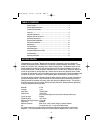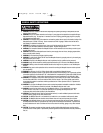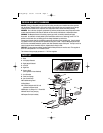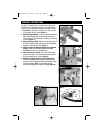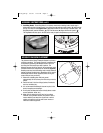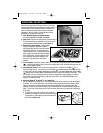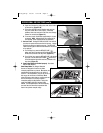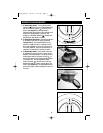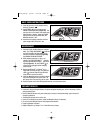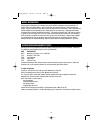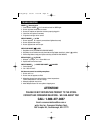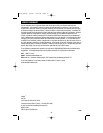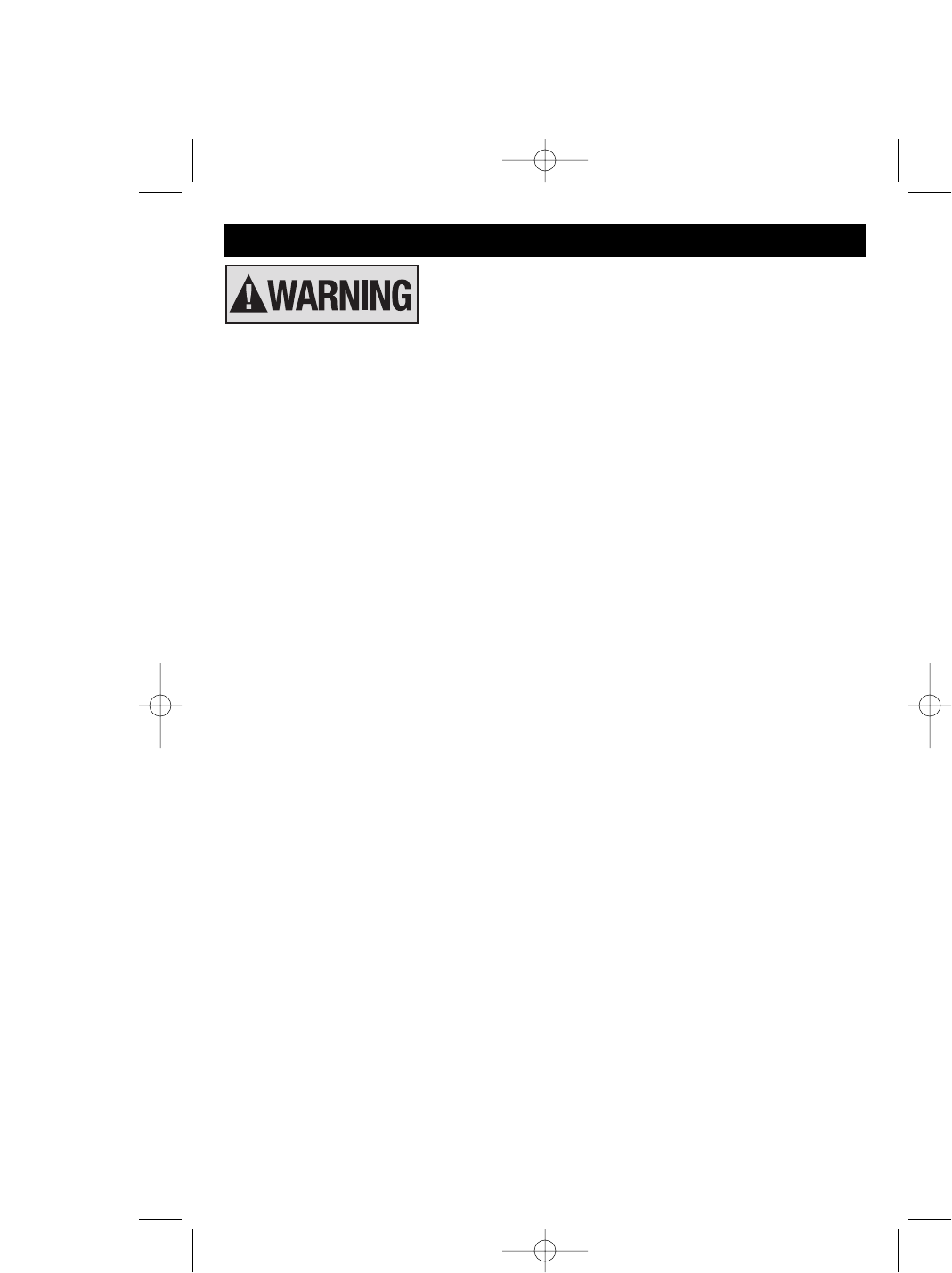
1. WARNING: Read this instruction manual before unpacking and operating the Stinger
®
Mosquito Vacuum and
retain for future reference.
2. WARNING: Only use an outdoor extension cord having a 2-prong plug and receptacle that accepts the Stinger
®
Mosquito Vacuum’s plug. The trap has a 2-conductor cord and a 2-prong grounding type plug to fit a properly
GFCI protected grounded outlet.
3. WARNING: The electrical rating of the extension cord must be greater than or equal to the electrical rating of the
Mosquito Vacuum (120 Volt / 0.8 Amp). Use an extension cord with 16 gauge or thicker wire and that has a
label stating it is suitable for outdoor use.
4. WARNING: Do not abuse any electrical cord. Never yank it to disconnect from the receptacle. Keep all cords
away from heat, flammable substances and sharp objects. Replace damaged cords.
5. WARNING: The connection between the Mosquito Vacuum and the extension cord must always remain dry and
kept off of the ground.
6. WARNING: Disconnect the Mosquito Vacuum from the power supply when not in use, changing propane tanks,
before servicing and/or cleaning.
7. WARNING: Do not insert foreign objects into this product.
8. WARNING: To avoid electric shock, DO NOT clean the Mosquito Vacuum by spraying water or by immersing any
Mosquito Vacuum part in water.
9. WARNING: All repairs to the Mosquito Vacuum must be performed only by qualified service personnel.
10. WARNING: Young children should be carefully supervised when they are in the area of the Mosquito Vacuum.
11. WARNING: Clothing or other flammable materials should not be hung from or placed on or near the Mosquito
Vacuum.
12. WARNING: Any guard or other protective device removed for servicing the Mosquito Vacuum must be replaced
prior to operating.
13. WARNING: A maximum of a 20 lb. LP-Gas cylinder shall be used with the Mosquito Vacuum.
14. WARNING: Use standard 20 pound LP gas cylinder with a shutoff valve terminating in an LP-gas supply cylinder
valve outlet specified for Connection No. 791 in the Standard for Compressed Gas Cylinder Valve Outlet and Inlet
Connections,ANSI/CGA-V-1 latest edition (Any standard propane tank manufactured in the USA after 1999)
15. WARNING: The installation must conform with local codes or, in the absence of local codes, with the National
Fuel Gas Code,ANSI Z223.1 for US and with the CAN1-B149 for Canada. The LP-Gas cylinder used shall be
constructed and marked in accordance with the specifications for LP-Gas cylinders of the U.S. Department of
Transportation (DOT).
16. WARNING: Do not place the Mosquito Vacuum under overhead unprotected combustible construction. Maintain
a minimum of 5 feet clearance around the perimeter of the Mosquito Vacuum when in use.
17. WARNING: Inspect the hose before each use of the Mosquito Vacuum. If it is evident there is excessive
abrasion or wear, or the hose is cut, it must be replaced prior to operating the Mosquito Vacuum. The
replacement hose shall be that specified by the manufacturer.
18. WARNING: The Mosquito Vacuum shall be used outdoors and only in a well-ventilated space and shall not be
used in a building, garage or any other enclosed area.
19. CAUTION: The Mosquito Vacuum is not intended to be installed in or on recreational vehicles and/or boats.
20. CAUTION: The Mosquito Vacuum should be stored indoors when not in use and kept away from children.
21. CAUTION: If the Mosquito Vacuum is not in use, the gas must be turned off at the supply cylinder. Storage of
the Mosquito Vacuum indoors is permissible only if the cylinder is disconnected and removed. Cylinders must
be stored outdoors out of reach of children and must not be stored in a building, garage or any other enclosed
area.
22. CAUTION: The pressure regulator and hose assembly supplied with the Mosquito Vacuum must be used for
connection to the LP-Gas cylinder. Replacement pressure regulators and hose assemblies must be provided by
Kaz, Inc.
GENERAL SAFETY INSTRUCTIONS
3
CT100_OM.qx 2/9/07 2:19 PM Page 3



